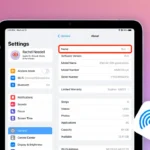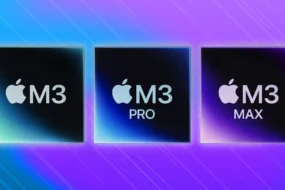Decentralized applications have been gaining popularity in recent years, offering a new way of building and using secure, transparent, and autonomous applications. These applications run on a blockchain network, and they differ from traditional applications in their decentralized nature, where no central authority controls them. Ethereum, a blockchain-based platform, has emerged as the leading platform for developing and deploying decentralized applications.
Through its smart contract technology, Ethereum provides a secure and decentralized infrastructure for developers to build innovative decentralized applications across various industries. In this article, we will explore the rise of decentralized applications and how Ethereum is changing the internet by providing a platform for these innovative applications.
Understanding Decentralized Applications and Ethereum

Decentralized applications, or dApps, are software applications that operate on a decentralized network, typically a blockchain. These applications are built on top of a distributed network of computers, where no central authority has control over the data or the application itself.
Decentralized applications are designed to be transparent, secure, and autonomous, allowing users to interact with the application directly without intermediaries or middlemen. Because of their decentralized nature, decentralized applications are resistant to censorship, manipulation, and fraud, making them an attractive alternative to traditional applications for various use cases.
Ethereum is a blockchain-based platform that enables developers to build decentralized applications using smart contract technology. Smart contracts are self-executing contracts that automatically enforce the terms of an agreement between parties. These contracts run on the Ethereum blockchain, providing a secure and decentralized infrastructure for developing and deploying decentralized applications.
Ethereum also has its cryptocurrency, Ether, which is used to pay for transactions and incentivize developers to build on the platform. The advantages of Ethereum include its flexibility, security, transparency, and interoperability, making it an ideal platform for building decentralized applications across various industries.
Ethereum has emerged as the leading platform for decentralized applications, with thousands of dApps built on the platform. The platform’s smart contract technology provides developers with a secure and decentralized infrastructure to build innovative decentralized applications across various industries. Ethereum’s network effect has also contributed to its success, with a vast community of developers and users actively contributing to the platform’s growth and development.
Some of the most popular use cases for Ethereum-based decentralized applications include finance, gaming, supply chain management, real estate, and healthcare. Ethereum’s potential to transform industries and change the internet as we know it is significant and it is likely to continue growing as more developers and users adopt the platform.
Ethereum’s Impact on Industries

Ethereum’s impact on industries has been significant, with decentralized applications transforming various sectors. Some of the most notable industries that Ethereum-based decentralized applications have transformed include finance, gaming, supply chain management, real estate, and healthcare. The decentralized nature of these applications provides transparency, security, and efficiency, making them ideal for various use cases.
The finance industry is undergoing a significant transformation with the rise of Ethereum-based decentralized applications. Decentralized finance, or DeFi, has emerged as a revolutionary use case for Ethereum, providing various financial services such as lending, borrowing, trading, and investment.
The decentralized nature of DeFi applications provides transparency, security, and accessibility, making it an attractive alternative to traditional financial services. DeFi is open to anyone with an internet connection, enabling global access to financial services, regardless of location or status.
The gambling industry is being transformed by Ethereum-based decentralized applications, which are providing numerous benefits to players. These platforms eliminate intermediaries and give users complete control over their funds, enabling them to bet directly from their digital wallets without third-party involvement.
Decentralized gaming platforms, like Ethereum casinos, use smart contracts to automate the gaming process, ensuring that the game rules are followed, and the outcomes are fair.
The use of blockchain technology in gambling provides players with an added layer of security, as all transactions are recorded immutably on the blockchain network. Ethereum-based decentralized gambling platforms, like Ethereum casinos, offer a transparent, fair, secure, and engaging gaming experience accessible to anyone with an internet connection and a digital wallet. The use of blockchain technology is revolutionizing the gambling industry and paving the way for a new era of decentralized and democratized gaming.
Real estate is another industry experiencing a significant transformation with the rise of Ethereum-based decentralized applications. Decentralized real estate platforms use smart contracts to automate the buying and selling process, ensuring that transactions are secure and transparent.
These platforms also offer fractional ownership, enabling investors to buy and sell shares of real estate assets. This fractional ownership makes real estate investing more accessible to a wider range of investors, making it a promising alternative to traditional real estate investment methods.
The healthcare industry is being transformed by Ethereum-based decentralized applications, providing a secure and transparent platform for managing healthcare data. Decentralized healthcare platforms use smart contracts to automate the data-sharing process, ensuring that patients have control over their data and can grant access to healthcare providers as needed.
The decentralized nature of these platforms provides security, privacy, and efficiency, reducing administrative costs and improving patient outcomes. The platform’s transparent and secure nature makes it a promising alternative to traditional healthcare systems.
The Future of Decentralized Applications and Ethereum

Decentralized applications have enormous potential for transforming various industries, providing a more transparent, secure, and efficient way of conducting business. These applications enable peer-to-peer transactions without the need for intermediaries, making them more accessible and cost-effective.
The potential use cases for decentralized applications are vast, ranging from finance and gaming to supply chain management and healthcare. Decentralized applications also have the potential to increase financial inclusion, providing access to financial services to those who are unbanked or underbanked. As the technology continues to evolve, the potential for decentralized applications is only expected to grow.
Despite the significant potential of decentralized applications and Ethereum, they are not without challenges. One of the significant challenges facing decentralized applications is scalability. As more users adopt decentralized applications, the blockchain networks on which they operate may become congested, leading to slower transaction speeds and higher fees.
Another challenge facing decentralized applications is regulatory uncertainty, with many jurisdictions struggling to define the legal status of decentralized applications and cryptocurrencies. Finally, security remains a significant concern for decentralized applications, with hackers continuously trying to exploit vulnerabilities in the blockchain network and smart contracts.
Decentralized applications and Ethereum have the potential to transform the internet as we know it, providing a more open, transparent, and secure internet for all. Decentralized applications enable users to take control of their data and transactions, reducing the need for intermediaries and increasing transparency.
Ethereum’s smart contract technology provides a secure and decentralized infrastructure for building and deploying decentralized applications, making it a crucial platform for the development of the decentralized internet. The potential impact of decentralized applications and Ethereum on the internet as a whole is enormous, and it is likely to continue growing as more developers and users adopt the technology.
Key Takeaways
The rise of decentralized applications built on Ethereum has transformed the internet, providing a more open, transparent, and secure platform for conducting business. Ethereum’s smart contract technology has enabled developers to build innovative decentralized applications across various industries, from finance and gaming to healthcare and real estate.
Despite the challenges facing decentralized applications and Ethereum, the potential impact of these technologies on the internet as a whole is enormous, promising to increase transparency and accessibility while reducing costs and intermediaries. As we look to the future, it is essential to recognize the potential of Ethereum and decentralized applications and the need to overcome the challenges facing them.
It is time for readers to take action and learn more about Ethereum and decentralized applications, as these technologies are likely to shape the internet for years to come.
Explore further:









